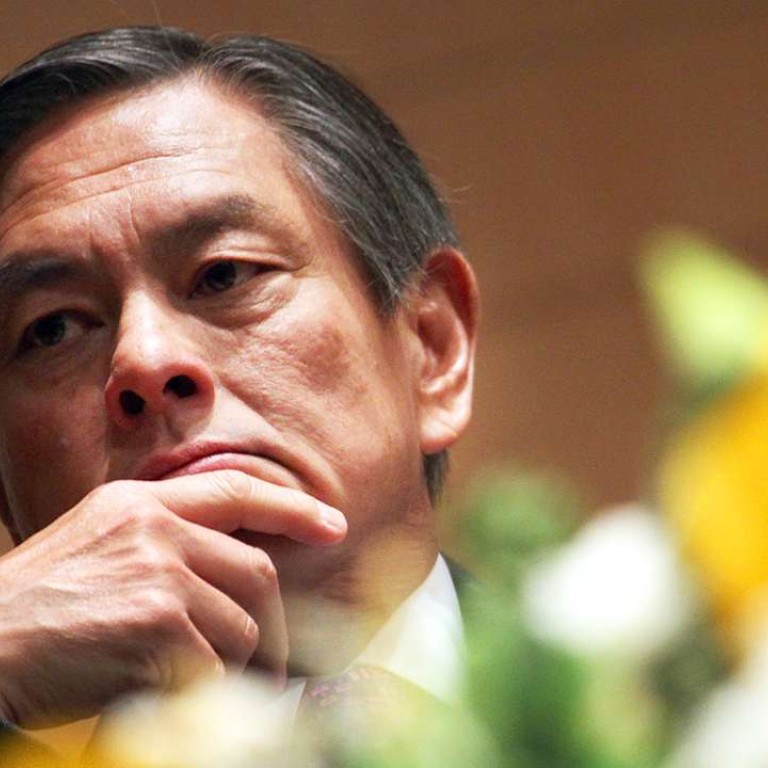
Youngsters dreaming of an independent Hong Kong ‘are being manipulated’, says Charles Ho Tsu-kwok
Youngsters yearning for an independent Hong Kong are only following Taiwan’s lead and they are being “easily manipulated” because they have yet to achieve anything on their own, claimed media and tobacco tycoon Charles Ho Tsu-kwok yesterday.
The remarks from Ho, the Sing Tao News Corporation chairman, stood in contrast to the stance taken yesterday by Executive Council member Bernard Chan, who said the government over the years had failed to resolve conflicts brought by the city’s faster-than-expected integration with the mainland.
Chan said striving for independence was an impossible mission as it would only mean obstructing the “one country, two systems” model and sending Beijing and the international community the wrong message.

“The government of course has its responsibility [to handle the conflicts brought by integration], but we must also admit everyone bears the same duty too,” said Chan.
Ho, also a standing committee member of the Chinese People’s Political Consultative Conference, went further, lambasting young pro-independence advocates whom he accused of being swayed by sentiments in Taiwan.
“Those young people have yet to find a job,” he told TVB’s On the Record on Sunday, stating that some were still studying and susceptible to following “an idea when there is one”.
Ho said “certain conditions” were needed for a place to determine its future and argued that young people had “advocated it first” before figuring out the necessary terms.
He singled out for criticism the Democratic Party, which sent several members to Taiwan to see its presidential election in January.
Ho accused the party of absorbing the idea of “Taiwan independence”, which in turn led to ideas about Hong Kong independence when they returned home, he said.
Yesterday’s comments came in the wake of the Hong Kong National Party last week announcing its formation, which swiftly drew Beijing’s condemnation.
Separately, Ho defended Chief Executive Leung Chun-ying, often labelled a hardliner, saying the city’s leader had already been highly tolerant of the legislature.

But he stopped short of endorsing Leung for a second term.
In 2012, Ho backed Leung’s opponent Henry Tang Ying-yen but became a loyal Leung supporter after he took office.
Dismissing Ho’s comments, Civic Party leader Alan Leong Kah-kit said it was Hongkongers who were putting up with Leung, whose popularity ratings remained low, instead of the other way round. Leong said Leung from the outset refused to alter the legislature’s agenda to put uncontroversial items atop its list.
Democratic Party chairwoman Emily Lau Wai-hing blasted Ho for talking “nonsense”.
She said it was not the first time her party observed Taiwan’s polls.
“Many Hongkongers who travelled to Taiwan are actually mature adults, not just young people,” said Lau, who did not join the trip in January. “They all yearn for democracy and freedom ... what is so surprising for them to witness the election there?”
Perhaps the most stinging criticism yet heaped on the Hong Kong National Party came yesterday when pro-Beijing columnist Chris Wat Wing-yin likened the party’s actions to a “revolution launched by a group of mentally ill patients”. Wat’s description prompted rebukes from various quarters.
> YOUNG RADICALS C1



